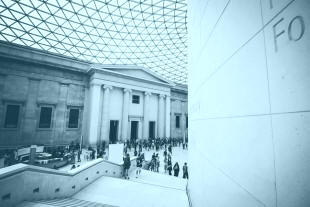TKT Module 1 Revision: Grammar
 |
You should only come here if you have completed a face-to-face course for TKT Module 1 or have done the Module 1 course on this site. |
 |
+ |
 |
Grammar |
Make a note of your answer to the question and then click on the
![]() to reveal the answer.
to reveal the answer.
The parts of the
answer which are underlined are things you
should know.
Examples are in black.
| What is the
difference between grammatical form and grammatical
function? Give one example of each. |
Grammatical form refers to
changes to
the word which show its grammar.
For example, the verb present changes to presented in the past tense. Grammatical function refers to what a word is doing in the sentence. For example, in: I bank in the High Street the word bank is a verb but in I use that bank the word bank is a noun. |
| What is the difference between
content words and grammar or function words? Give two examples of different sorts of each type. |
Grammar or
function words carry no meaning when they stand alone
but function to make the syntax of the language work.
Content words carry meaning even when they stand alone. Examples of content words include: verbs – hold, enjoy, destroy etc. nouns – house, computer, enjoyment etc. adjectives – pretty, losing, complete etc. adverbs – honestly, actually, tomorrow etc. Examples of grammar or function words include: articles – a(n), the demonstratives – this, that, those etc. pronouns – he, she, it etc. prepositions – of, without, in etc. conjunctions – and, although, because etc. |
| Define the term 'proper noun' and
give two examples. |
Proper nouns refer to people and places and are
usually spelled with a capital letter.
Examples are: People: The President, Mrs Smith, Aunt Mabel Places: The Alps, Rio de Janeiro, The British Museum |
| What is the difference between mass
and count nouns? Give two examples of each. |
Mass nouns refer to uncountable things and cannot
usually be made plural.
Count nouns refer to individual things and can be made plural or singular. Examples of mass nouns are: milk, water, happiness, sarcasm Examples of count nouns are: computer(s), clock(s), nut(s) |
| What is the difference between main
or lexical verbs and auxiliary verbs? Give two examples of each type. |
Main or
lexical verbs carry meaning when they stand alone.
Auxiliary verbs form tenses or express modality with main verbs. Examples of main or lexical verbs include: enjoy, lift, open, speak, have (in the sense of 'own') Examples of auxiliary verbs include: can, might, be, have, do |
| What is the difference between
primary and modal auxiliary verbs? Give two examples in clauses of each type. |
Primary
auxiliary verbs make tenses with main verbs.
Modal auxiliary verbs express how the speaker feels about a statement. Examples of primary auxiliaries are: He has seen the play She got her hair done The window had been repaired Do you like apples? Examples of modal auxiliary verbs are: Can you see the problem? I might be late I have to take my tablets She couldn't argue |
| What is a
copular verb? Give three examples of different copular verbs in clauses. |
A copular
verb joins a noun to its
complement (another noun or an adjective,
usually).
Examples include: She looks tired My teacher became the headmistress Mary is late I'm growing old She got angry It smells of cinnamon etc. |
| Give an
example
of a predicative and an attributive adjective use. |
Predicative
use:
The apples are delicious The problem became serious The house was cheap Attributive use: The open-door policy My old dog The plain truth |
| There are 5 sorts of adverbs.
What are they? Give an example of each in a
clause. |
Adverbs of
manner:
He spoke clearly She drove fast Adverbs of time: I leave tomorrow She was late Adverbs of frequency: She is often unhappy I never go to the theatre Adverbs of place: Go inside Please wait there Adverbs of degree: I really enjoyed the meal She drove very quickly |
| Identify the words in black in this
sentence and explain the difference in meaning: A car arrived at the hotel and the driver came in. |
A is the
indefinite article and
refers to any car
(i.e., one I don't know)
the is the definite article and refers to a specific hotel and driver (cars only have one, unique driver, and the hotel is a place you and I know). |
| Identify the words in black in this
sentence and explain the difference in meaning: Those cakes are delicious but so is this ice cream. |
Those and
this are both
demonstratives.
Those refers to a plural noun that is far from the speaker. This refers to a singular (or mass) noun that is near to the speaker. |
| Identify the words in black in this
sentence and explain what function they have: They have three children and lots of pets including several birds and a few fish but they have no cats. |
All these
words are quantifiers.
Quantifiers tell us how much there is or how many there are of something. |
| Identify the word class of the
words in black in this sentence and say what is unusual
about the word order: He has nothing useful to do and must find something interesting to fill his time. |
Both words
are pronouns.
With these pronouns, the adjective follows rather than comes before the word. |
| What do prepositions do? What are the two main kinds? Give two examples of each. |
Prepositions connect
the verb with a place or time, joining the verb to the
noun or pronoun.
The two main kinds are prepositions of place and prepositions of time. Examples include: Time: He went on Monday and will be away for three days I arrived at six but he had left before five Place: The clock stood in the corner of his desk by the window He left the key underneath the flower pot outside the door. |
| Identify the word in black in this
sentence and explain what function it has: She saw the accident and telephoned the police. |
The word
and is a
coordinating conjunction.
It functions to join together
two equal ideas
(and in this case, tells us which action came first).
|
| Identify the word in black in this
sentence and explain what function it has: She took the car before I could stop her. |
The word
before is a
subordinating conjunction.
It functions to join together
two unequal ideas
(and in this case, tells us which action came first).
|
| Identify the tense and the aspect
of the verb in this sentence: They were out walking all morning. |
The tense
is past.
The aspect is progressive (sometimes called continuous). |
| Identify the tense and the aspect
of the verb in this sentence: They will have had dinner by now. |
The tense
is future.
The aspect is perfect. |
| Identify: the noun phrases the verb phrase the adjective phrases the adverb phrase the prepositional phrase in this sentence: My dear old cat frequently likes to lie lazily in the warm sunshine. |
There are
two noun phrases:
My old cat and the warm sunshine There is one verb phrase: frequently likes to lie Note: This verb phrase contains an adverb. Traditionally, verb phrases contain only verb forms but it often makes sense in the classroom to treat this as a single constituent of the sentence. In the tests in this area, the verb phrase contains the adverbial. There are two adjective phrases: dear old and warm There is one adverb phrase: frequently There is one prepositional phrase: in the warm sunshine |
 |
That's the end.How did you do? |
Now you can go on. Select the revision section you want to do from this menu.
